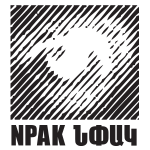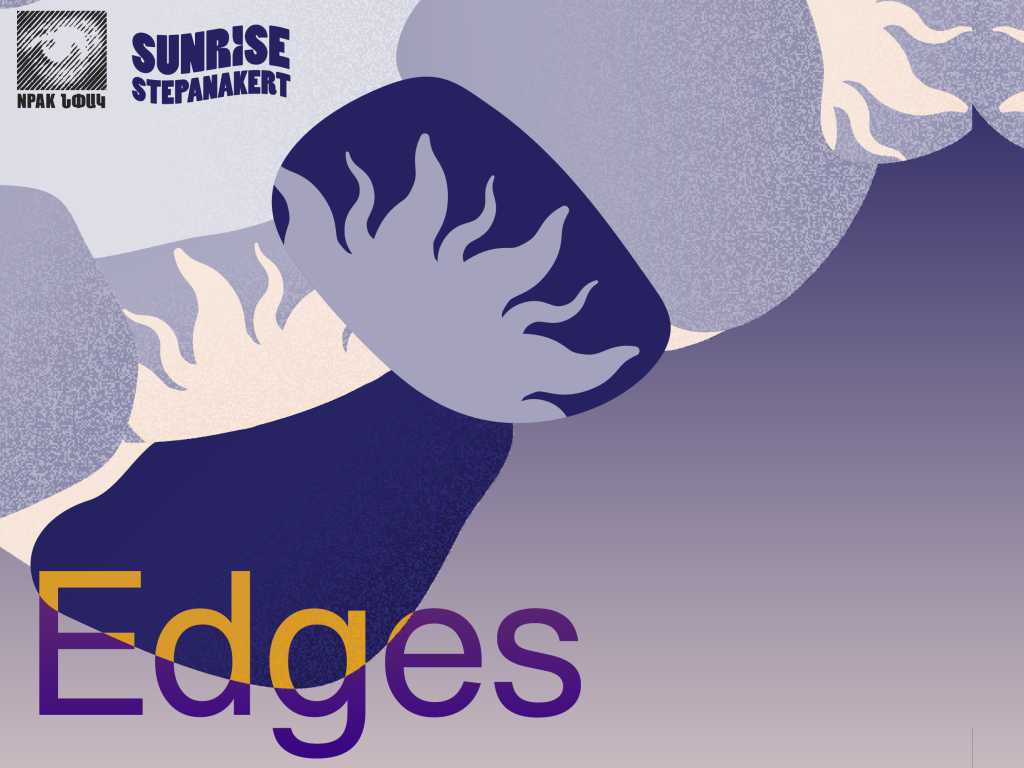Annual Sunrise Stepanakert Art Festival exhibition, entitled “Edges”
Curator of the exhibition: Bela Poghosyan.
The world and humanity are currently engaged in ideological disputes, resulting in unrecognized territories, unrecognized individuals, invasion of personal boundaries, and conflicts on both physical and psychological levels. When we examine these impersonal descriptions more closely, we witness the individual tragedies of people, their losses, sufferings, and the deaths of their loved ones. We also see ourselves, how we ended up teetering on the edge of our own stories and lives, frozen in a state of maintaining an imaginary equilibrium.
Unbeknownst to us, we have become mere statistics, reduced to numbers on bureaucratic lists or pawns in global political agendas. What is the true purpose of our existence other than fulfilling the mass “mission” imposed upon us? Why has the core essence of human life—living in harmony, happiness, love, and peace—become a luxury, viewed as something selfish? We are instructed to cling to our own “truth,” to rally behind specific slogans, but for what purpose? And how does this relate to the inability to reunite with our loved ones from Stepanakert? By what criteria are individuals chosen to live in happiness, harmony, and peace while others are denied? Who determines who is superior and who is inferior? And from where does the authority derive to make decisions for others or dictate their future?
Each person possesses their own “truth,” and conflicts arise when their “truth” clashes with another’s. In other words, one is right as long as they do not encroach upon another’s boundaries or act within predefined frameworks.One of the eco-friendly solutions is the situation where the “truth” of one and the “truth” of the other will exist on the same plane and enter into an equivalent dialogue. This necessitates that participants do not cling to their own ideas as unchangeable and absolute truths, but rather embrace the existence of differing opinions and strive to understand one another. Solidarity generates a collective experience that allows us to be part of a larger community without sacrificing our individuality.
When we perceive ourselves as part of the world, we must recognize our role in collective work, a collective mission, and collective action. We merge our thoughts with the collective, yet retain our individuality as a contribution to something greater. We are an embodiment of specific thoughts and experiences, woven into a larger narrative. In this context, we are not mere statistics but actively participate in a sense of solidarity with others who share our humanity.
Clutching onto one’s own “truth” is a self-centered flaw in our society, an illusory belief that we can exert power over the world and others. Human consciousness operates based on patterns established throughout life, but when faced with certain triggers,a person can transform and change patterns. So how then can we assert that our “truth” is the ultimate truth? And if a person cannot substantiate their “truth” due to inherent limitations, how can one oppress another in the name of a subjective truth that may be fleeting? The question remains unanswered. It is unacceptable to present our thoughts as the only truth when each person possesses their own unique perspectives.
As mentioned above, we are used to holding on to our truths, opinions, and ideas. People’s actions come from the fear of death: the desire to fit into history is one example. A greedy attitude to material goods, appropriation of the opinions of people and territories is the outcome of a deep fear of death, fear of being erased from history by others, fear of being just statistics. All this leads to the desire to assert oneself through other people and the erasure of other “truths”. However, it is impossible to gain one’s “truth” by erasing another “truth”. At the everyday level, these are personal conflicts, the appropriation of certain concepts and ideas as private property; at the state level, it is aggression against an entire people, oppression, and the erasure of identities.
Instead of getting closer, we move further and further away, believing that only our “truth” is “truth”. But as said, this is not an option.
Bela Poghosyan
Artists:
Maryam Tamrazyan (Russia)
Mariam Arami (Papoyan) (Armenia)
Anna Lepler (Israel)
Vanik Mejlumyan (Artsakh)
Sasoun Margaryan (Armenia)
Roman Karman (Russia)
Sona Gevorgyan (Artsakh)
Tamar Haytayan (Canada)
Vera Reiner (Russia)
Genadi Aghajanyan (Artsakh)
Misak Samokatian (Armenia)
Mariam Energetic (Armenia)
June 30-July 9
NPAK, 2023



























